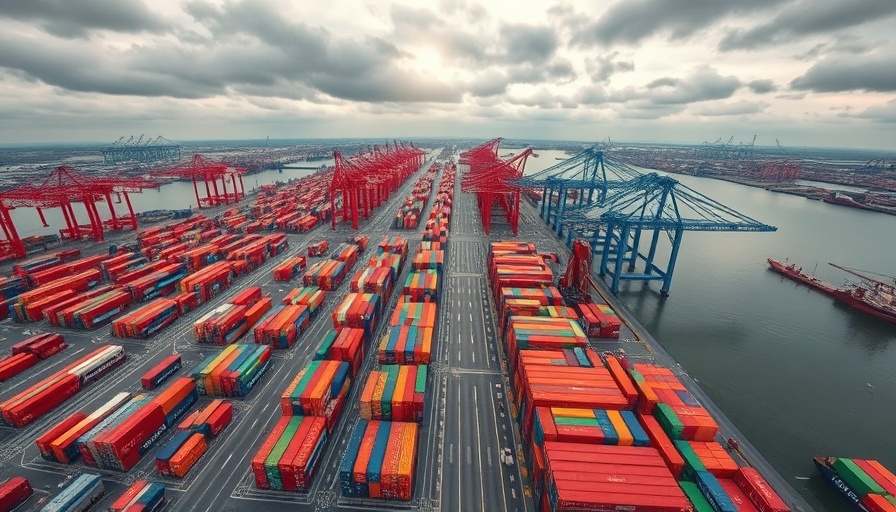
Understanding the 'Washing' Process of Chinese Goods
In an era of fluctuating trade policies and tariffs, notably highlighted by former President Donald Trump's approach to the U.S.-China trade relationship, many Chinese exporters have resorted to a practice known as "washing". This involves rerouting products through third countries, effectively disguising their origin to bypass tariffs. This complex maneuver not only highlights the lengths to which companies will go to maintain profit margins but also raises questions about trade ethics and the impacts on global supply chains.
The Impacts of Tariffs on Trade Relations
Historically, tariffs have been used as tools of economic strategy. In the case of the U.S.-China trade dynamic, Trump's tariffs aimed to bolster American manufacturing and reduce the trade deficit. However, these measures have had a ripple effect. Companies facing increased costs from tariffs are finding innovative ways to adapt. For example, Chinese manufacturers are now increasingly looking at places like Vietnam and Malaysia to provide a layer of separation for their products, which they then export to the U.S. This is not just a response to tariffs, but a demonstration of the agility of businesses within the global market.
Global Supply Chain Transformations
As businesses navigate these waters, the transformations within global supply chains become evident. The practice of washing products may save some manufacturers from tariffs today, but it potentially sets off a chain reaction that complicates logistics, raises costs, and creates a less transparent trade environment. Investors and business leaders in the Bay Area and beyond need to be acutely aware of these shifts, especially as emerging technologies facilitate these outsourced processes.
Bay Area Business Adaptations
With Silicon Valley startups constantly innovating, the local business scene is particularly active in responding to these trade challenges. California entrepreneurs, especially those within tech, e-commerce, and consumer goods sectors, are employing strategic pivots, such as altering their supply chains or finding alternate markets. This adaptability is crucial not just for survival but for thriving amidst unpredictable economic climates. Business trends indicate a growing need for flexibility, with an emphasis on sustainable practices and corporate social responsibility taking center stage in business discussions.
The Future of Trade Policies and Business Strategies
Looking ahead, it's imperative for Bay Area businesses, from startups to giants, to anticipate potential changes in trade regulations. As countries globally refine their policies, those businesses that can rapidly adapt their operations to meet shifting demands will prevail. This includes not only compliance with international trade laws but also a commitment to ethical trading practices that promote sustainability and corporate governance.
Conclusion: Acting on Insights
For entrepreneurs and business leaders, it’s clear that the landscape of trade is at a crossroads. Understanding how to navigate tariffs and adapt to new regulations is vital for long-term success. By engaging in ethical practices and prioritizing flexibility, local businesses can sculpt their paths in increasingly competitive markets. Keeping informed about global economic forecasts and local business updates can provide valuable insights as entrepreneurs make critical decisions for the future.
 Add Row
Add Row  Add
Add 



Write A Comment